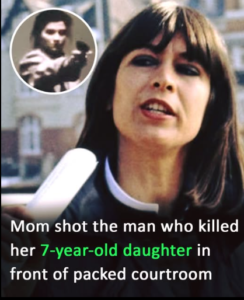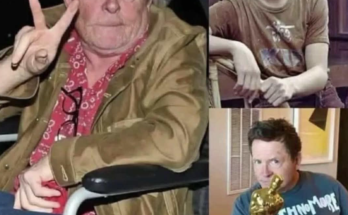Marianne Bachmeier’s world shattered in 1980 when her seven-year-old daughter, Anna, was abducted and murdered by Klaus Grabowski, a 35-year-old convicted pedophile. Grabowski, who had a history of child abuse, lured Anna into his home, held her captive for hours, then strangled her to death before stuffing her body into a canal. He was arrested after his fiancée reported his crime to the police.
As the trial began in 1981, Bachmeier sat in court, listening to the horrifying details of her daughter’s final moments. On the third day of proceedings, as Grabowski spoke about Anna, Bachmeier snapped. Overcome with grief and rage, she smuggled a small pistol into the courtroom, pulled it from her handbag, and fired seven shots at him. Six bullets struck Grabowski in the back, killing him instantly.
Gasps filled the courtroom. The judge and lawyers froze in shock. Security rushed to detain Bachmeier, who made no attempt to escape. The trial was suddenly no longer just about Grabowski’s crimes—it became about whether a mother’s grief justified vigilante justice.
Bachmeier’s actions divided public opinion. Many saw her as a grieving mother who did what the justice system had failed to do—deliver swift punishment to a monster. Others worried that her act set a dangerous precedent. The case sparked debates across Germany about justice, revenge, and morality.
When Bachmeier’s own trial began, she expressed regret but insisted she had acted out of unbearable pain. Prosecutors initially charged her with murder, but the court later reduced the charge to manslaughter and unlawful possession of a firearm. In 1983, she was sentenced to six years in prison but served only three before being released.
After her release, Bachmeier sought a quieter life. She later moved to Nigeria with her husband, but the marriage ended in divorce. She then settled in Sicily and worked in a hospice, seeking peace after the tragedy that defined her life. In 1994, she gave interviews reflecting on her actions, admitting she acted out of overwhelming grief rather than a clear sense of justice.
In 1995, she was diagnosed with pancreatic cancer. As her health declined, she returned to Germany, where she passed away in 1996 at age 46. She was buried next to Anna, finally reunited with the daughter she had avenged.
Marianne Bachmeier’s story remains one of the most famous cases of vigilante justice. Her decision to take the law into her own hands continues to raise questions: Was it justice or revenge? Was she a hero or a criminal? More than four decades later, her actions still spark debate about how far a mother’s love can push her—and whether grief can justify taking a life.
